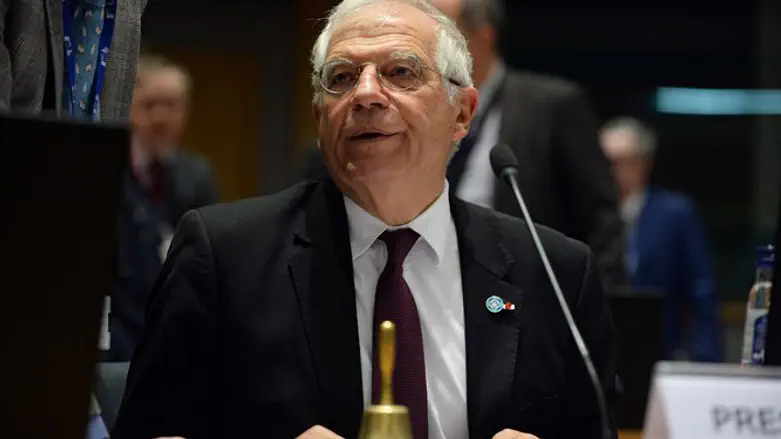
Josep Borrell, the EU Foreign Minister, met on Friday in Brussels with the Palestinian Authority (PA) “foreign minister”, Riyad Al Malki.
In a statement following the meeting, the EU said the two “exchanged views on relations between the European Union and the Palestinian Authority. High Representative Borrell reiterated the EU’s continued support to Palestinian state building.”
Borrell “stressed the EU's continued commitment to a negotiated two-state solution, welcomed the Palestinian commitment to engage in the resumption of meaningful negotiations and reiterated the EU’s readiness to work with both parties, the actors in the region and all international partners to revive a political process, in line with international law, which ensures equal rights and which is acceptable to both parties,” said the statement.
“They also discussed the situation on the ground, in particular the recently released US proposals for the Middle East Peace Process, the prospect of elections, the current political and humanitarian situation in Gaza and the need to further advance the intra-Palestinian reconciliation process,” concluded the statement.
Borrell criticized Trump's Middle East initiative after it was released, saying the Israelis and Palestinians should directly negotiate a two-state solution based on the borders that existed before the 1967 Six Day War.
The US plan "departs from these internationally agreed parameters," Borrell said in a statement in which he added the European Union was "especially concerned" by Prime Minister Binyamin’s Netanyahu's push to apply sovereignty to Judea, Samaria and the Jordan Valley.
The PA has also rejected the Trump proposal, with its chairman Mahmoud Abbas saying the plan would be relegated to the "dustbin of history."
PA officials, in an attempt to bypass talks with Israel, have been pressuring countries in Europe to officially recognize “Palestine”.
While several European countries have recognized “Palestine” in recent years, those moves were symbolic ones that have little, if any, actual diplomatic effect.
(Arutz Sheva’s North American desk is keeping you updated until the start of Shabbat in New York. The time posted automatically on all Arutz Sheva articles, however, is Israeli time.)
